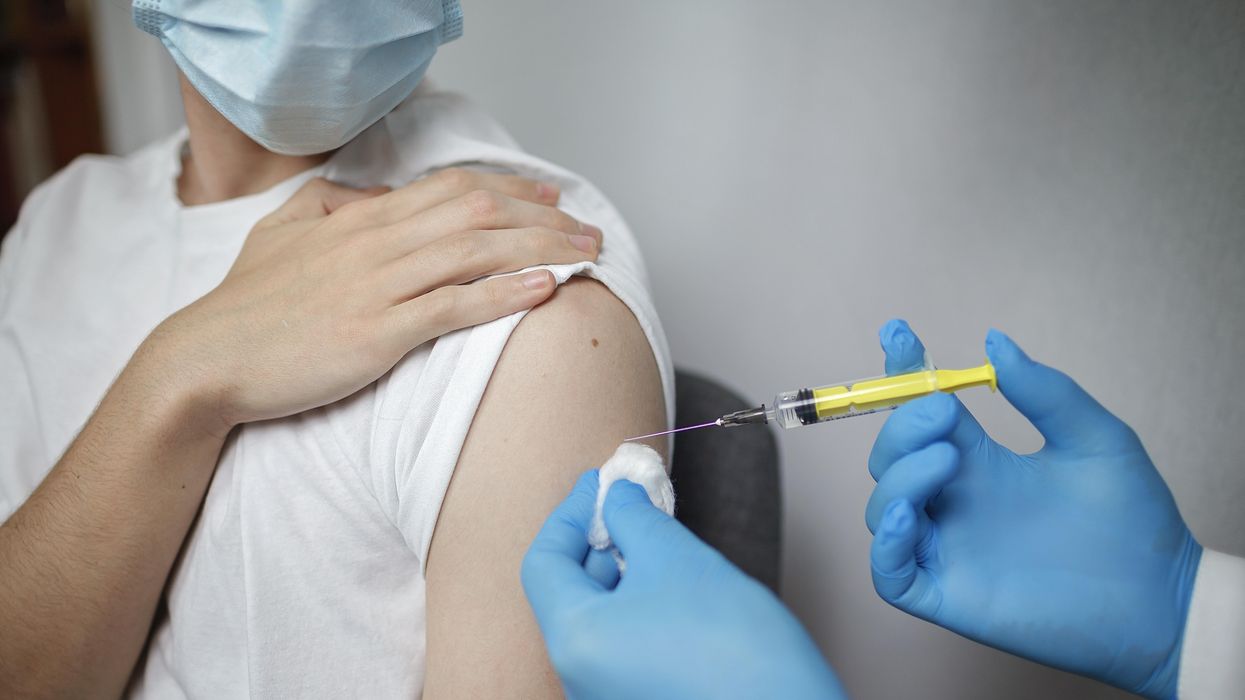A national study that checked in with Generation Z one year into the Covid-19 pandemic suggests the U.S. government has work to do to gain their trust.
According to findings from "The New Normal," a nationwide February 2021 study conducted by Springtide Research Institute, majorities of Gen Z disagree that the government has done its best to protect us (66 percent), that they've felt protected by the government during the pandemic (64 percent), and that the government has done a good job navigating the pandemic (65 percent). A strong majority (80 percent) disagree that they felt safe in public during the pandemic.
These findings have significant implications at a time when the government is ramping up efforts to reach a generation that accounts for a quarter of Covid cases yet has shown vaccine hesitancy, being called one of the "biggest barriers to mass immunity." More than half of the study's 2,500 participants (57 percent) agreed that it might be hard to trust others, including the government, because of how they handled the pandemic.
Distrust may be to blame for vaccine holdouts
Most of the coverage on vaccine holdouts among Gen Z has focused on their lack of urgency due to their age. They are "invincible, young, and healthy," as one psychologist put it. However, Springtide's findings suggest that distrust toward the government may be the elephant in the room that isn't being addressed.
As recently as April, it was discovered that little to no vaccine messaging from the White House was being tailored to Gen Z. One 22-year-old told STAT, "There isn't anything that is consumable and/or targeted at our demographic. ... [Messaging online] isn't targeted toward our age group, it doesn't explain why, if you're a healthy 19-year-old, you should get this vaccine."
Other Gen Z'ers have shared concerns about the long-term health impact of the vaccines, citing the need for more information before making a decision. "Health and government officials must honestly address concerns and barriers raised by Gen-Z adults regarding vaccination," medical students Matt Alexander and Jesper K, told CNN, naming concerns about infertility, blood-clotting, heart conditions, and the fear of missing work, school, or caretaking duties. "While it will be challenging to create effective campaigns that resonate authentically with Gen Z, it's a necessary step to build trust among our generation," they said.
Young people are the ticket to reaching Biden's goals
Last week, the White House admitted that the United States would not reach its stated goal of 70 percent of adults receiving at least one Covid-19 shot by Independence Day, and the gap is primarily made up of young adults — which Biden's Covid team acknowledges. Vaccine coverage among Gen Z has been lower and is increasing more slowly than in other age groups. If the current pace continues, only 57 percent of adults under 30 will have received at least one dose of a Covid-19 vaccine by the end of August.
Notably, the White House's new strategy to close the gap is to leverage the trust that young people have toward their peers. The Biden administration's grassroots approach includes the formation of a Covid-19 student community corps of leaders as young as 16 years old. The initiative aims to equip young people with tools to go into their communities and talk to their classmates, family members and friends about getting vaccinated.
The White House is also leveraging the popularity of social apps among Gen Z, partnering with Snapchat and YouTube to encourage vaccinations. Snapchat alone reaches 90 percent of people ages 13-24 in the United States as well as 75 percent of the 13- to 34-year-old U.S. population.
The high stakes of building trust with Gen Z
This multi-pronged, grassroots approach suggests the Biden administration is sensitive to the challenge of persuading a generation that is far less trusting of the government than previous generations. In a 2019 Pew study that tracked American's trust in the government and other aspects of civic life, nearly half of young adults (46 percent) ended up in the "low trust group" — a significantly higher share than among older adults. Even more, data on epidemics since 1970 suggest that individuals who experience an epidemic during their "impressionable years" (ages 18-25) are less likely to have confidence in political institutions, leaders and elections.
For the Biden administration and Gen Z, the stakes of building trust couldn't be higher. The highly infectious new Delta strain of Covid-19 is spreading rapidly among young people in the United Kingdom, prompting Biden to tweet, "If you're young and haven't gotten your shot yet, it really is time. It's the best way to protect yourself and those you love."
Hopefully, Biden's plea isn't too little, too late.



















